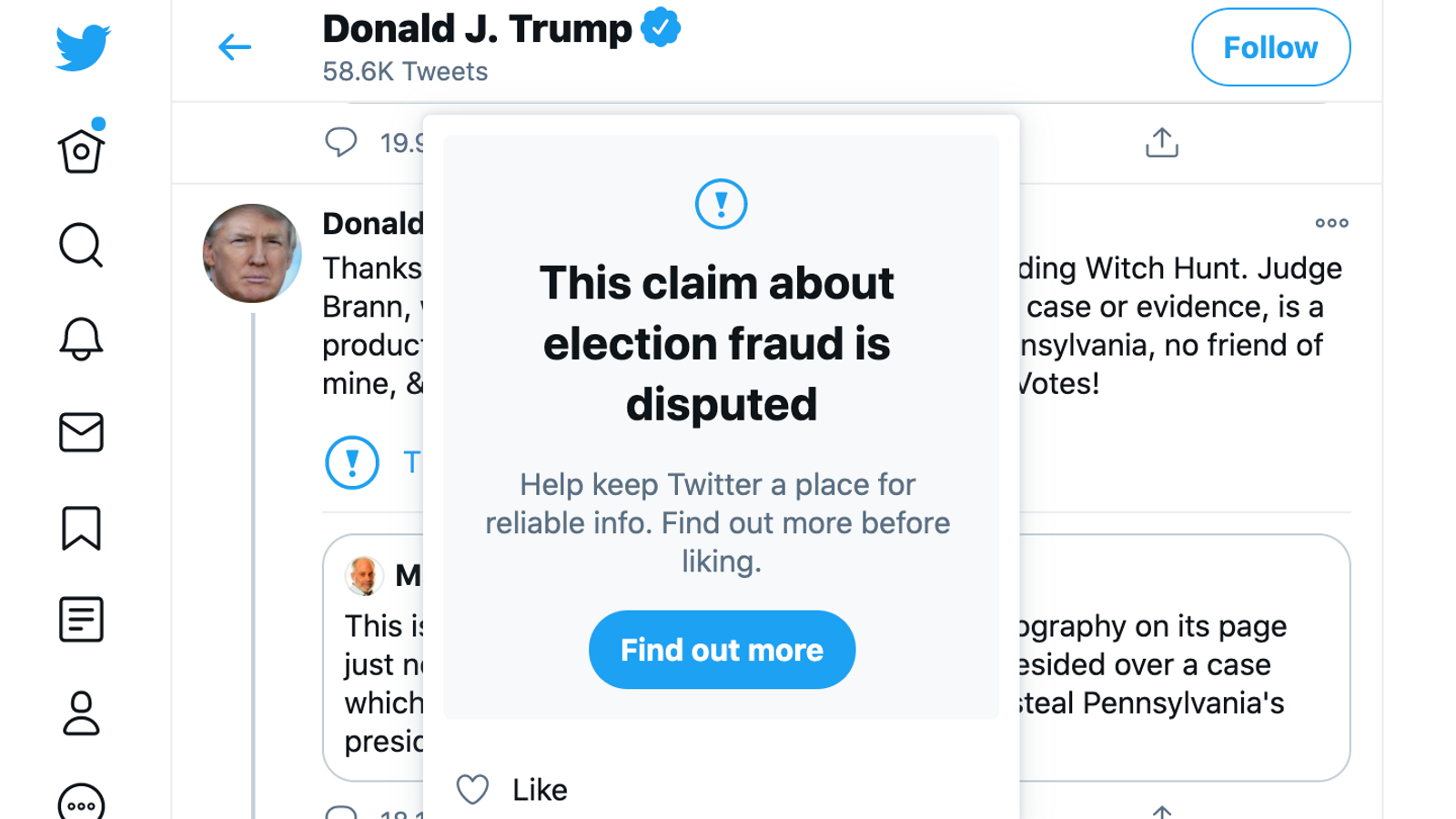Twitter is now warning users when they attempt to ‘like’ a disputed tweet as part of its efforts to tackle misinformation.
The move means that users who try to like disputed messages from Donald Trump about the US election will receive an additional prompt asking them to “help keep Twitter a place for reliable info”.
Twitter said it was “vital” the company gives additional context about why labelled tweets were misleading, whether those tweets were about the US election or COVID-19.
Currently users are unable to retweet a message that has received a label for including disputed messages, although they can quote tweet those messages, which requires them to provide additional context.
When the prompts were previously shown to quote tweet users, they lowered the spread of misleading information by 29% according to the platform, which is why the feature is being added to likes as well.
The move follows a scientific study which found that Mr Trump’s prolific tweeting masks a strategic use of Twitter to divert the media from covering topics that are potentially harmful to him.
In the years following the last election in 2016, social media platforms faced a barrage of allegations that their incompetence or apathy contributed to undermining the integrity of the electoral process by allowing disinformation to reach millions of voters.
Similar questions have been raised about whether the platforms are doing enough to tackle conspiracies relating to the COVID-19 pandemic.
However the most prominent challenge facing social media platforms in recent weeks has come not from foreign actors, but the sitting president himself who has alleged voter fraud and disputed the US election result – and his domestic supporters who have been amplifying his messages.
Professor Jennifer Grygiel, a social media expert at Syracuse University, said: “Twitter can’t really enforce policies if they don’t do it before it happens, in the case of the president.
“When a tweet hits the wire, essentially, it goes public. It already brings this full force of impact of market reaction.”
Although the time taken for Twitter to apply a label may still vary, as these are acts of human moderation, the friction the prompt will add to people liking a potentially misinformed tweet may prevent these messages from spreading further.
